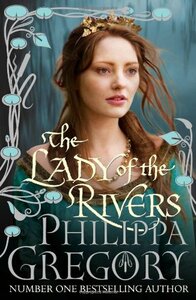Take a photo of a barcode or cover
challenging
dark
emotional
informative
reflective
medium-paced
Plot or Character Driven:
A mix
Strong character development:
Yes
Loveable characters:
Yes
Diverse cast of characters:
No
Flaws of characters a main focus:
Complicated
adventurous
challenging
informative
reflective
slow-paced
Plot or Character Driven:
Plot
Strong character development:
No
Loveable characters:
Complicated
Diverse cast of characters:
N/A
Flaws of characters a main focus:
Yes
I got so bored with this. At the end I kept falling asleep and having to rewind the audio. Maybe straight historical fiction is not for me.
adventurous
emotional
inspiring
reflective
tense
medium-paced
Plot or Character Driven:
Plot
Strong character development:
Yes
Loveable characters:
Complicated
Diverse cast of characters:
No
Flaws of characters a main focus:
No
hopeful
informative
lighthearted
medium-paced
Plot or Character Driven:
A mix
Strong character development:
No
Loveable characters:
Complicated
Diverse cast of characters:
No
Flaws of characters a main focus:
No
This is my third Philippa Greggory novel that I have read now and it has confirmed my love for her as an author.
The way in which she takes what is known to us about these historical figures and events and fleshes them out to be fully formed people again is truly amazing.
I look forward to continuing the series and further expanding my knowledge of this period in history that i find so fascinating.
The way in which she takes what is known to us about these historical figures and events and fleshes them out to be fully formed people again is truly amazing.
I look forward to continuing the series and further expanding my knowledge of this period in history that i find so fascinating.
Whenever I think of this book, I remember the nausea I had when recovering from having my appendix out. Not just because I read this book during my recovery, but because the book is also, alas, total crap.
To be fair, I expected it would be – I’d read three Philippa Gregory novels before this one and pretty well classed her as an “only buy if they turn up for 50c at a secondhand bookshop and you’re bored” author. Her novels are quick, easy reads that might be fun, but are often inaccurate and pretty poorly written. The only reason I picked up The Lady of the Rivers is because of my interest in John, Duke of Bedford, brother of Henry V, who was the first husband of Gregory’s protagonist here, Jacquetta of Luxembourg.
There’s plenty of stuff in The Lady of the Rivers that should be interesting. At the start, you have the attempt to establish English rule in France, following Henry V’s great victories and the Treaty of Troyes, the rebellion and imprisonment of Joan of Arc, and the struggle over power in England between Bedford’s younger brother, Humphrey, Duke of Gloucester, and their half-uncle, Cardinal Beaufort. Then you have Margaret of Anjou’s marriage to Henry VI and the subsequent poor decisions that lead to the end of English rule in France, Henry VI rapidly losing the support, and the beginnings of the Wars of the Roses.
The problem is that we don’t see a lot of it. Jacquetta is a passive observer to most of it, often hearing about events second or third hand. She isn’t affected by it unless she gets to moan about her second husband being endangered or separated from her. Even then, she’s distantly relating events and emotions. Everything is summary, and because of that, repetitious. At the end of the book, you feel like yelling “come on!” because it’s just one conflict being recounted after another while you’re waiting for something to happen and end the story. There is no movement in a book that desperately needs movement. While I have no issue with the battle scenes being skipped over (there is no way Jacquetta, our first-person narrator, witnessed them), there’s no emotional payoff when she does hear about them.
Because everything is in summary with Jacquetta rarely present, a lot of Gregory’s attempts at foreshadowing go nowhere. For example, Jacquetta meets Humphrey, Duke of Gloucester, and Bedford makes an ominous comment about how Gloucester is one to watch – but Jacquetta never sees Gloucester again, we have no indication why Gloucester is potentially dangerous (aside from being a womaniser, but Bedford would hardly care about that) and by the time we get the summary of Gloucester’s downfall, the mood is more about how Margaret of Anjou has screwed up than Gloucester being anyone of importance. It’s like “look out, this person is dangerous – never mind, they’re dead!”
The characters are fairly flat. Margaret of Anjou comes across as a bratty teenager who has to get her own way all the time and has no idea how the real world works, Richard Woodville is a bland romantic hero, Jacquetta is, as I said, a passive observer. There’s no complexity or spark of life to them, they just are just paper cut-outs that do things. The only character I felt anything for was Henry VI, who was simply drawn but treated so awfully that I felt sorry for him.
Historically, this isn’t a time period I know a lot about – I don’t know much about the details of Henry VI’s reign or what led to the Wars of the Roses. I do know a little more about Bedford and Gloucester. Gloucester’s treatment was disappointing, but entirely predictable. Bedford’s, though, was just odd, and I think Gregory’s characterisation of him was less about the historical figure and more about her apparent theory that “Jacquetta and her daughter were real witches!!!” and her need to stuff magic into a story that absolutely didn’t need magic. I’m sure that whether or not Bedford had a latent interest in alchemy or astrology (which were considered real sciences during his lifetime), he was far too busy to dedicate his life to alchemy and that he didn’t marry Jacquetta so she could help him in his experiments.
And perhaps the best indicator of how dull this book is and how poorly characterised everyone is that we never once get the sense of how Jacquetta feels about her ~magic powers~. Does she want to use them? What does she think about Bedford using her for her powers? Is she resentful that Richard Woodville forbids her from using them? What makes her finally start using them, ultimately passing them on to her daughter? How does she feel about them at all?
It’s impossible to tell.
*
Original, short review:
One of the rationales about reading this pile of crap was the fun I'd get out of writing a review. Alas, I read this when I was recovering from having my appendix out. I don't know if I will have the strength to review it properly. Suffice it to say, this was terrible, Henry V needs to collect his brother (seriously wtf was up with the Duke of Bedford) and the main thing in my head is the witch-burning sketch from Monty Python ("we've found a witch! may we burn her?")
To be fair, I expected it would be – I’d read three Philippa Gregory novels before this one and pretty well classed her as an “only buy if they turn up for 50c at a secondhand bookshop and you’re bored” author. Her novels are quick, easy reads that might be fun, but are often inaccurate and pretty poorly written. The only reason I picked up The Lady of the Rivers is because of my interest in John, Duke of Bedford, brother of Henry V, who was the first husband of Gregory’s protagonist here, Jacquetta of Luxembourg.
There’s plenty of stuff in The Lady of the Rivers that should be interesting. At the start, you have the attempt to establish English rule in France, following Henry V’s great victories and the Treaty of Troyes, the rebellion and imprisonment of Joan of Arc, and the struggle over power in England between Bedford’s younger brother, Humphrey, Duke of Gloucester, and their half-uncle, Cardinal Beaufort. Then you have Margaret of Anjou’s marriage to Henry VI and the subsequent poor decisions that lead to the end of English rule in France, Henry VI rapidly losing the support, and the beginnings of the Wars of the Roses.
The problem is that we don’t see a lot of it. Jacquetta is a passive observer to most of it, often hearing about events second or third hand. She isn’t affected by it unless she gets to moan about her second husband being endangered or separated from her. Even then, she’s distantly relating events and emotions. Everything is summary, and because of that, repetitious. At the end of the book, you feel like yelling “come on!” because it’s just one conflict being recounted after another while you’re waiting for something to happen and end the story. There is no movement in a book that desperately needs movement. While I have no issue with the battle scenes being skipped over (there is no way Jacquetta, our first-person narrator, witnessed them), there’s no emotional payoff when she does hear about them.
Because everything is in summary with Jacquetta rarely present, a lot of Gregory’s attempts at foreshadowing go nowhere. For example, Jacquetta meets Humphrey, Duke of Gloucester, and Bedford makes an ominous comment about how Gloucester is one to watch – but Jacquetta never sees Gloucester again, we have no indication why Gloucester is potentially dangerous (aside from being a womaniser, but Bedford would hardly care about that) and by the time we get the summary of Gloucester’s downfall, the mood is more about how Margaret of Anjou has screwed up than Gloucester being anyone of importance. It’s like “look out, this person is dangerous – never mind, they’re dead!”
The characters are fairly flat. Margaret of Anjou comes across as a bratty teenager who has to get her own way all the time and has no idea how the real world works, Richard Woodville is a bland romantic hero, Jacquetta is, as I said, a passive observer. There’s no complexity or spark of life to them, they just are just paper cut-outs that do things. The only character I felt anything for was Henry VI, who was simply drawn but treated so awfully that I felt sorry for him.
Historically, this isn’t a time period I know a lot about – I don’t know much about the details of Henry VI’s reign or what led to the Wars of the Roses. I do know a little more about Bedford and Gloucester. Gloucester’s treatment was disappointing, but entirely predictable. Bedford’s, though, was just odd, and I think Gregory’s characterisation of him was less about the historical figure and more about her apparent theory that “Jacquetta and her daughter were real witches!!!” and her need to stuff magic into a story that absolutely didn’t need magic. I’m sure that whether or not Bedford had a latent interest in alchemy or astrology (which were considered real sciences during his lifetime), he was far too busy to dedicate his life to alchemy and that he didn’t marry Jacquetta so she could help him in his experiments.
And perhaps the best indicator of how dull this book is and how poorly characterised everyone is that we never once get the sense of how Jacquetta feels about her ~magic powers~. Does she want to use them? What does she think about Bedford using her for her powers? Is she resentful that Richard Woodville forbids her from using them? What makes her finally start using them, ultimately passing them on to her daughter? How does she feel about them at all?
It’s impossible to tell.
*
Original, short review:
One of the rationales about reading this pile of crap was the fun I'd get out of writing a review. Alas, I read this when I was recovering from having my appendix out. I don't know if I will have the strength to review it properly. Suffice it to say, this was terrible, Henry V needs to collect his brother (seriously wtf was up with the Duke of Bedford) and the main thing in my head is the witch-burning sketch from Monty Python ("we've found a witch! may we burn her?")
adventurous
challenging
informative
mysterious
medium-paced
Plot or Character Driven:
A mix
Strong character development:
Complicated
Loveable characters:
Complicated
A fantastic start to the series. I seriously fell in love with Jaquetta, every step of her journey. The people she meets, her husband and her children. She handles every problem with a smart head and still managed to smooth the waters.




